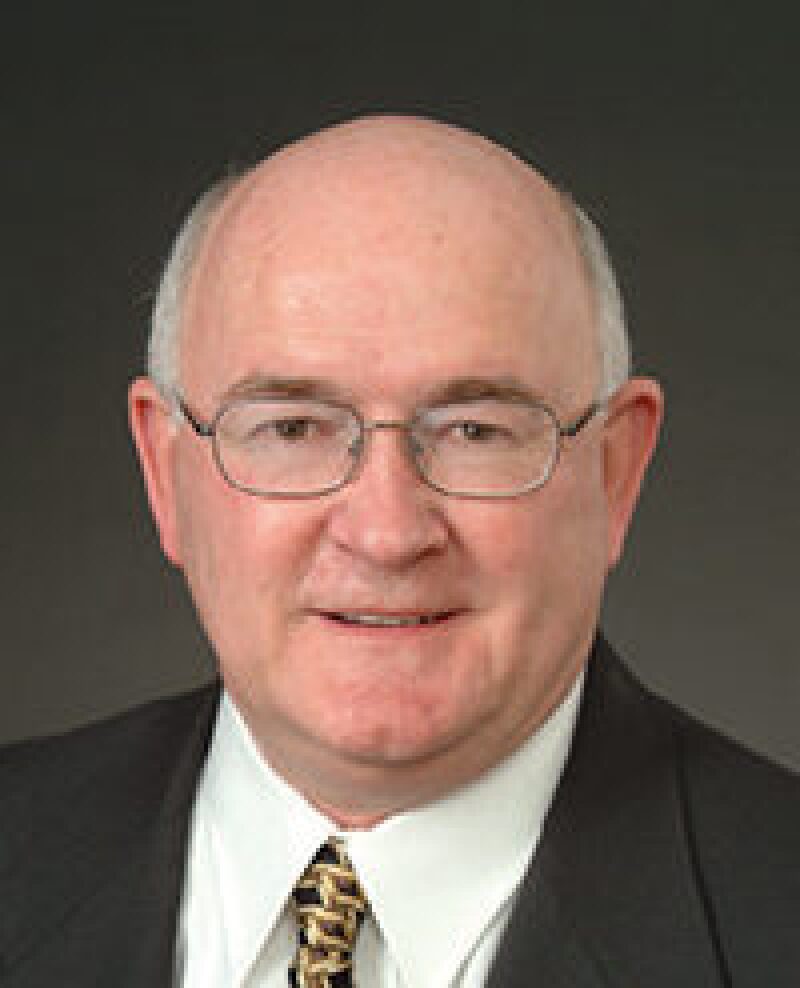
Congratulations to all the young professionals who have worked on The Way Ahead for completing a third year of production. The magazine has become a valued tool for reaching and connecting young SPE members. The current issue addresses the important topic of developing competencies.
The worldwide demand for energy has never been so great and continues to grow. Today’s young professionals, university students, and the next generation entering the field will be called upon to find new energy resources that will lead to an improved standard of living for all of the citizens of the world.
As I have traveled to SPE sections throughout the world, I have met many young professionals and students. I am confident that you have the talent and the passion to meet the challenge. It’s up to the industry to provide opportunities to develop your talents and to encourage your passion. It is up to you to be motivated to learn and to excel. Motivation is a trait that cannot be taught. Skills can be taught, with the right instruction and the desire to learn.
Once, young petroleum engineers could begin to contribute independently almost immediately upon graduation. Today, the rapid rate of technological change requires more years for new graduates to become competent. Competence today means day-to-day demonstration of a basic level of attainment of both technical and interpersonal skills.
Developing technical skills is a lifelong journey. It consists of formal training and experience gained through job assignments, as well as mentoring and the learning that can be gained from participating in technical societies. I firmly believe that being an active participant in SPE can provide almost unlimited opportunities to learn and to gain recognition that will help you in your career.
What can you do to be successful in your career? The answers are not new, but they are worth repeating.
Seek Mentoring
Actively learn from the experienced personnel around you. Your mentor can be someone within your company, or from outside your company. SPE offers an eMentoring program that can provide an outside perspective from a more experienced member at another company. You can also learn a tremendous amount from participating in SPE’s online technical interest groups. The beauty of these programs is that they draw from every part of the world and are available worldwide. Our more senior members are quite willing to share their knowledge and can provide valuable insights and guidance. In addition, consider being a mentor to a university student; the best way to learn is to teach someone else.
Take Charge of Your Career
No matter how good your company’s professional-development program is, it is up to you to master the skills in your field of expertise. The SPE eLibrary offers more than 45,000 technical papers that can help you solve technical problems that you encounter in your work, and also to become a subject-matter expert in your chosen field if you want to move your career vertically. If you want to move laterally, read more broadly to learn about technology in other disciplines. Take full advantage of the professional-development programs offered by your company. Your commitment to excellence and continual improvement in everything you do will serve you well and will open opportunities.
Learn How To Write Technical Papers
The next step beyond reading technical papers to learn about technology is to share and present knowledge yourself. The rewards of coauthoring a paper are great. Not only do you clarify your thinking and improve your research by writing a paper, but you gain exposure as an expert in a specific technology. You add professional standing to your résumé, and you give back to the industry by sharing knowledge. Gaining experience in presenting a paper to a live audience will help you at work in presenting your projects and your ideas. I can’t emphasize enough the importance of developing good communications skills for a young engineer.
Move Beyond Your Comfort Zone
Expand your world by taking assignments that will provide new experience. Your life and your career will be enriched by exposure to new regions and different cultures, if you choose to take an assignment in another country. SPE can offer many opportunities to polish your skills in a new area. You can practice your team-management skills by serving on an SPE committee in your section or gain leadership skills by serving as a section officer or leader of your local young-professionals group. Young professionals have gained industry exposure by serving on SPE’s international Young Professional Coordinating Committee and by contributing to The Way Ahead. I’m certain that by stepping up to volunteer, you will gain much more than you give.
Be a Team Player
Collaboration is critical to getting our projects accomplished. Not only must you have good technical skills, you must be able to work in a team environment to be successful. Being part of a team means building on other people’s ideas and sharing the credit for accomplishments. If something truly deserves credit, there is more than enough credit to go around.
Young professionals will have unprecedented opportunities to become the leaders of tomorrow. Your challenge is to be ready to take the reins. SPE offers many avenues for developing both your technical and your interpersonal skills throughout your career. Remember, competence is a lifelong journey.

